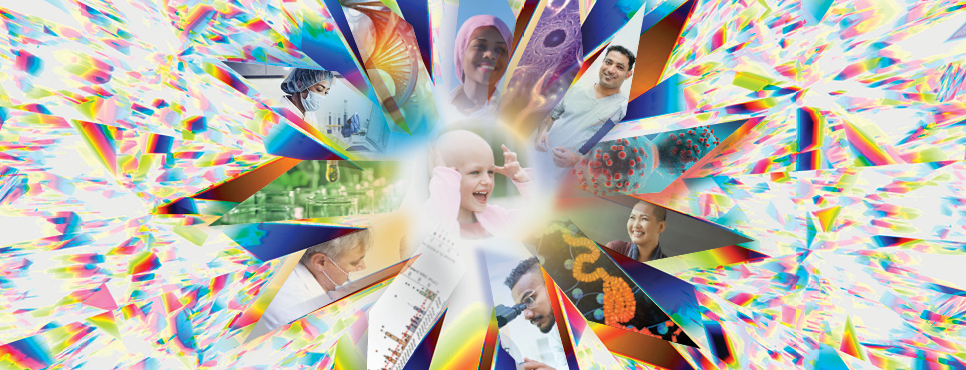NextGen Stars
The NextGen Stars program provides an exciting opportunity to increase the visibility of early-career scientists at the AACR Annual Meeting and to support the professional development and advancement of those selected as AACR NextGen Stars.
CONGRATULATIONS TO THE 2022 NEXTGEN STARS!
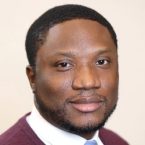
Mustapha Abubakar, MD, PhD
Research Fellow, Division of Cancer Epidemiology and Genetics
National Cancer Institute, Rockville, Maryland
Double-edged “soil”: Stromal microenvironment in breast cancer
Major Symposium SY25
Metabolic and Nutritional Regulation of Cancer and Immunity
Tuesday, April 12, 2022

Ana Luisa Correia, PhD
Principal Investigator, Cancer Dormancy and Immunity Lab
Champalimaud Foundation, Lisbon, Portugal
Revisiting NK cell immunity to prevent metastasis
Major Symposium SY31
Sunday, April 10, 2022

Isra Elhussin, MBBS, MSc
Tuskegee University, Tuskegee, Alabama
Prostate cancer: Multi-omics comparison between European, African American, and Native African men with prostate cancer
Advances in Organ Site Research AOS08
The Next Generation of Targets for Prostate Cancer
Monday, April 11, 2022
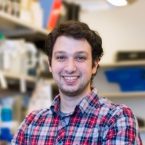
Ekrem Emrah Er, PhD
Assistant Professor, Department of Physiology and Biophysics
University of Illinois at Chicago, Chicago, IL
Elevated cellular stiffness sensitizes metastatic cells to destruction by mechanosurveillance: The mechanical mode of immune surveillance
Major Symposium SY23
Extracellular Matrix Remodeling in Cancer
Tuesday, April 12, 2022
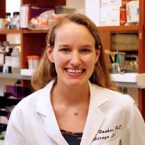
Ariella Hanker, PhD
Assistant Professor, Simmons Comprehensive Cancer Center
The University of Texas Southwestern Medical Center, Dallas, Texas
It takes two: Cooperating oncogenic mutations in the HER2/HER3 pathway
Advances in Organ Site Research AOS02
Triple Negative Breast Cancer: Molecular Insights and Treatment Advances
Monday, April 11, 2022
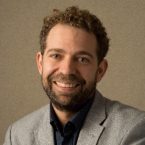
Daniel Herranz, PharmD, PhD
Assistant Professor of Pharmacology
Rutgers Cancer Institute, New Brunswick, New Jersey
Identification of SIRT1 as a novel therapeutic target in T-ALL
Major Symposium SY04
Epigenetic Alterations as Cancer Therapeutic Targets
Monday, April 11, 2022
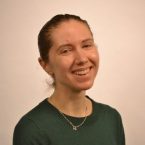
Sarah J. Hill, MD, PhD
Assistant Professor, Medical Oncology/Molecular and Cellular Oncology
Dana-Farber Cancer Institute, Boston, Massachusetts
Dissecting mechanisms of NK cell dysfunction and re-engagement in high grade serous ovarian cancer
Advances in Organ Site Research AOS10
Advances in Ovarian Cancer Screening and Treatment
Monday, April 11, 2022
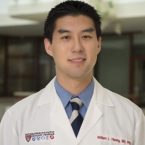
William L. Hwang, MD, PhD
Radiation Oncologist and Research Fellow
Massachusetts General Hospital Cancer Center/Harvard Medical School, Boston, Massachusetts
Multicellular spatial community featuring a novel neuronal-like malignant phenotype is enriched in pancreatic cancer after neoadjuvant chemotherapy and radiotherapy
Major Symposium SY12
Monday, April 11, 2022
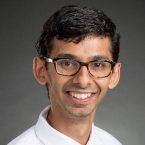
Anand G. Patel, MD, PhD
Instructor, Department of Oncology
St. Jude Children’s Research Hospital, Memphis, Tennessee
The myogenesis program drives clonal selection and drug resistance in pediatric rhabdomyosarcoma
Advances in Organ Site Research AOS09
Tuesday, April 12, 2022
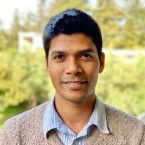
Arja Ray, PhD
Postdoctoral Fellow, Department of Pathology
University of California San Francisco, San Francisco, California
Next-generation macrophage and T cell activation reporters to define functional immune states in solid tumors
Major Symposium SY19
Myeloid Cell Control of Therapeutic Antitumor Immunity
Tuesday, April 12, 2022
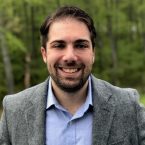
Marcus Ruscetti, PhD
Assistant Professor, Department of Molecular Cell and Cancer Biology
University of Massachusetts Chan Medical School, Worcester, Massachusetts
Modulating cellular senescence to reinstate natural killer cell immunity for pancreatic cancer immunotherapy
Major Symposium SY24
Aging and the Tumor Microenvironment’s Impact on Minimal Residual Disease and Cancer Recurrence
Wednesday, April 13, 2022
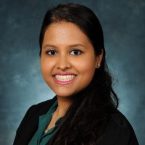
Ayesha Shafi, PhD
Assistant Professor, Center for Prostate Disease Research
Uniformed Services University of the Health Sciences/The Henry M. Jackson Foundation for the Advancement of Military Medicine, Bethesda, Maryland
The circadian cryptochrome, CRY1, is a pro-tumorigenic factor that rhythmically modulates DNA repair
Presidential Select Symposium SY33
Monday, April 11, 2022

Katherine Tossas, PhD, MS
Assistant Professor, Department of Health Behavior & Policy
Massey Cancer Center, Virginia Commonwealth University, Richmond, Virginia
The vaginal microbiome may operate differently by race to precipitate the risk of pre-cervical cancer
Advances in Population Sciences APS01
Where You Live Matters: From Biological to Social Determinants of Cancer Outcomes
Tuesday, April 12, 2022
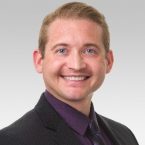
Derek Wainwright, PhD
Assistant Professor, Departments of Neurological Surgery, Medicine, and Immunology
Northwestern University Feinberg School of Medicine, Chicago, Illinois
IDO: Going beyond enzyme activity to eradicate glioblastoma
Advances in Organ Site Research AOS13
Advances in Glioblastoma Cancer Research and Cancer Care
Monday, April 11, 2022
View the abstracts of the NextGen Stars’ presentations from the AACR Annual Meeting 2021:
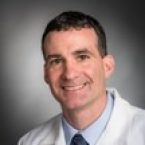
Andrew Aguirre, MD, PhD
Physician and Assistant Professor of Medicine
Harvard Medical School, Boston, Massachusetts
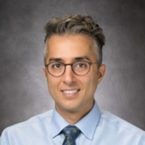
Moran Amit, MD, PhD
Assistant Professor, Department of Head and Neck Surgery
The University of Texas MD Anderson Cancer Center, Houston, Texas
Cancer takes a nerve: Loss of p53 drives neuron reprogramming in head and neck cancer
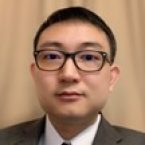
Xuhui Bao, MD, PhD
Postdoctoral Associate, Department of Dermatology
Duke University Medical Center, Durham, North Carolina
From cholesterol regulation to tumor suppression: Pcsk9 as a novel target for cancer immunotherapy

Shruti Bhatt, PhD
Assistant Professor, Department of Pharmacy
National University of Singapore, Singapore
Reduction in mitochondrial priming drives resistance to targeted therapy in acute myeloid leukemia
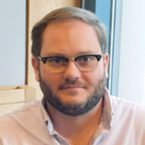
George M. Burslem, PhD
Assistant Professor, Department of Biochemistry and Biophysics
Perelman School of Medicine of the University of Pennsylvania, Philadelphia, Pennsylvania
Addressing scaffolding roles of oncogenic kinases with targeted protein degradation
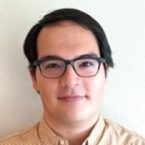
Pau Castel, PhD
Postdoctoral Scholar, HDF Comprehensive Cancer Center
University of California, San Francisco, San Francisco, California
Oncoprotein duality in cancer and developmental syndromes: Lessons learned from RAS GTPases
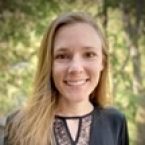
Burcu Darst, PhD
Postdoctoral Fellow, Department of Preventive Medicine
Keck School of Medicine of the University of Southern California, Los Angeles, California
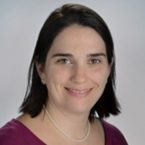
Christy R. Hagan, PhD
Assistant Professor, Department of Biochemistry and Molecular Biology
University of Kansas Medical Center, Kansas City, Kansas
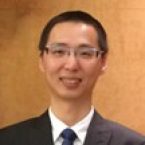
Xin Jin, PhD
Scientist/Group Lead
Broad Institute of MIT and Harvard, Cambridge, Massachusetts
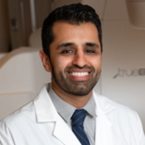
Anusha Kalbasi, MD
Assistant Professor, Department of Radiation and Oncology
David Geffen School of Medicine, University of California Los Angeles, Los Angeles, California
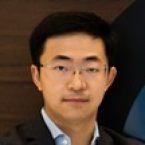
Yuxuan Phoenix Miao, PhD
Assistant Professor, Ben May Department of Cancer Research
The University of Chicago, Chicago, Illinois
Decoding the stem cells-immune cell dialogues for cancer immunotherapy
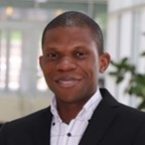
Zeribe Chike Nwosu, PhD
Postdoctoral Research Fellow, Department of Molecular and Integrative Physiology
Rogel Cancer Center, University of Michigan, Ann Arbor, Michigan
Identification of high priority genes for basic and translational pancreatic cancer research
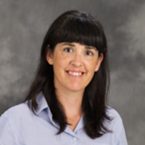
Sara Pedron, PhD
Assistant Professor, Department of Chemical and Biomolecular Engineering
University of Illinois at Urbana-Champaign, Urbana, Illinois
Bioengineered tissue mimetic hydrogels to study brain tumor biology and screen therapeutics

Luis Alberto Perez-Quintero, MD, PhD
Postdoctoral Fellow, Department of Biochemistry
Goodman Cancer Research Centre, McGill University, Montréal, Québec, Canada

Debattama Sen, PhD
Member of the Faculty, Center for Cancer Research
Massachusetts General Hospital Cancer Center, Harvard Medical School
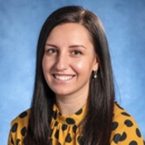
Eneda Toska, PhD
Assistant Professor, Department of Oncology
Sidney Kimmel Cancer Center, Johns Hopkins University, Baltimore, Maryland
Epigenetic mechanisms of endocrine therapy response in breast cancer
